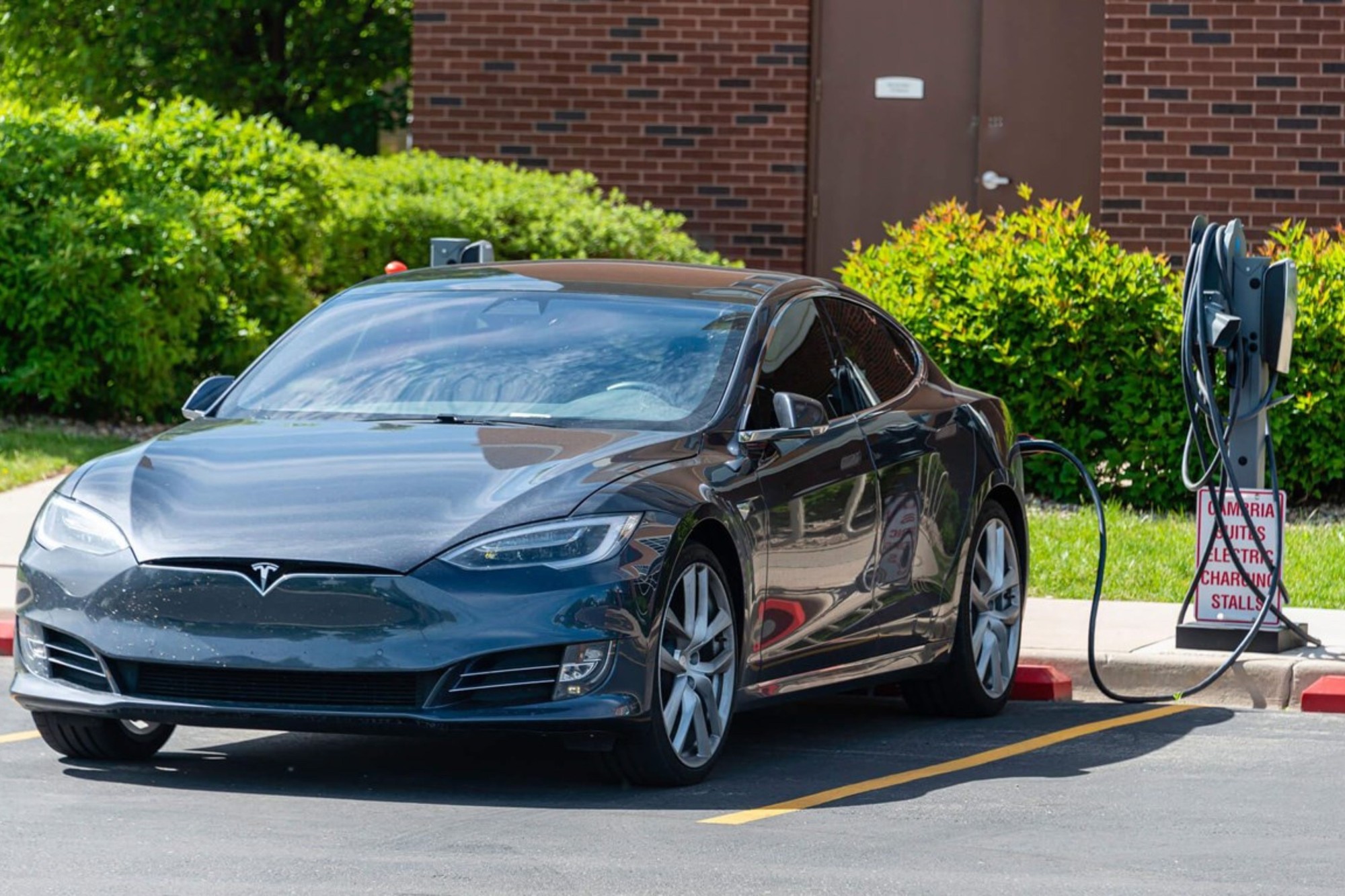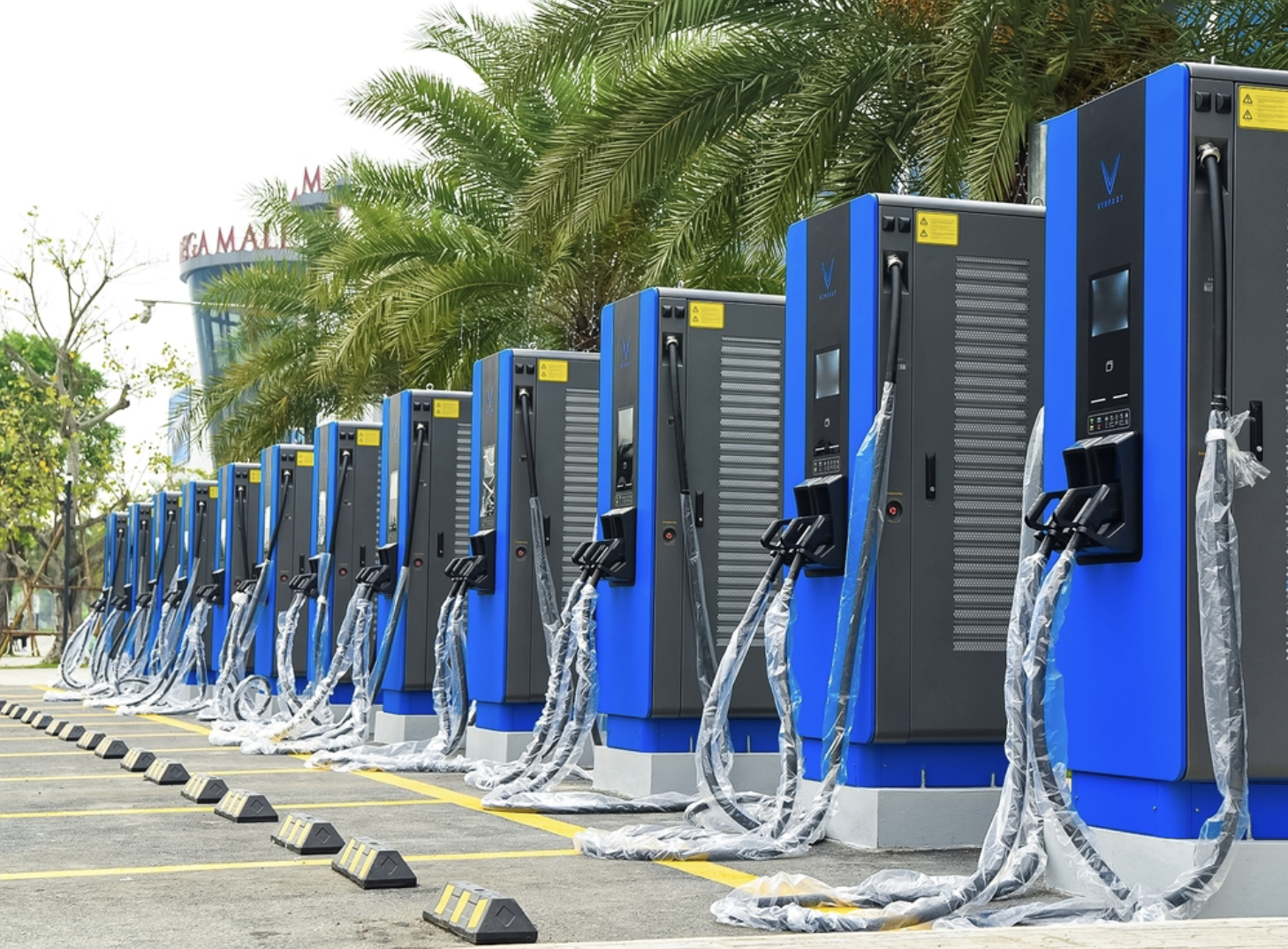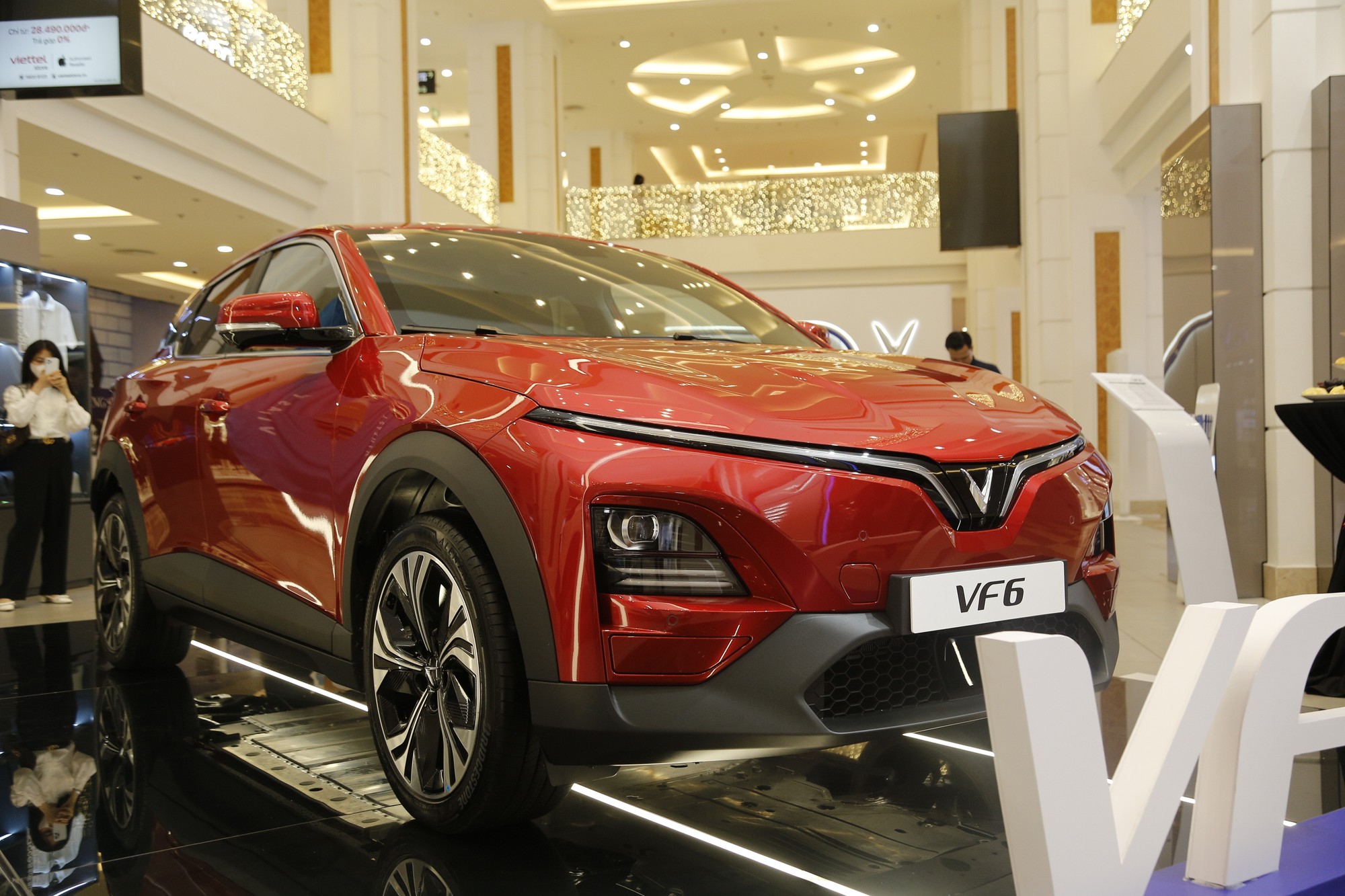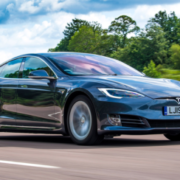Why haven’t major electric car players entered the Vietnamese market?
According to statistics from the Ministry of Transport, as of July 2023, the Vietnamese market has only seen around 12,600 electric cars. This number is mainly contributed by the sales of VinFast, as globally renowned electric car brands are yet to establish a presence in Vietnam.
However, according to the predictions of the Vietnam Automobile Manufacturers Association (VAMA), the number of electric cars in Vietnam is expected to experience significant growth in the coming years, reaching 1 million units by 2028 and 3.5 million units by 2040.

The globally renowned electric car company, Tesla, has not yet made an official presence in the Vietnamese market
INFRASTRUCTURE BARRIERS TO CHARGING STATIONS
If the goal is to reach 1 million electric vehicles by 2028, the lack of charging infrastructure is one of the major barriers to the development of this type of vehicle. In the domestic market, the number of electric cars is still limited, and the charging station network has not been evenly developed. This makes the use of electric vehicles challenging, especially for those living in non-central areas.
In a discussion with the media on policy and institutional issues in the development of electric vehicles in Vietnam at the “Electric Vehicles” seminar organized by Hanoi University of Science and Technology at the end of March 2023.
Prof. Dr. Bui Van Ga, a thermal engine specialist, former Deputy Minister of Education and Training, believes that: “The use of electric vehicles is not a technological issue but is about the infrastructure for us to use it, so state investment and planning are crucial.”

The VinFast electric vehicle charging station system has many competitive advantages when widely deployed
In Vietnam, the electric vehicle charging station system mainly comes from VinFast. The Vietnamese brand has developed a charging station system with over 150,000 charging ports for electric motorcycles and electric cars across 63 provinces and cities. VinFast charging stations are equipped with various power capacities, ranging from 11kW to 250kW, located at parking lots, bus stations, residential buildings, offices, shopping centers, rest stops, and petrol stations along highways and national roads, enabling users to charge their vehicles quickly and conveniently.
Some luxury car brands such as Mercedes, Porsche, BMW, or Audi are also establishing charging station systems for customers, but the quantity is still limited, mostly installed at showrooms or the manufacturer’s facilities. This situation makes consumers interested in purchasing electric cars from these brands consider the charging issue.
Currently, VinFast has no intention of sharing its electric car charging stations. Billionaire Pham Nhat Vuong believes, “There is no reason for VinFast to invest millions of USD in building charging stations that can easily be used by competitors. Therefore, after 10 years, other companies can use them.”
Furthermore, the cost of electric cars is still higher than traditional gasoline vehicles. This is because the production cost of electric cars remains high, especially the cost of batteries. According to the General Statistics Office, the average GDP per capita in Vietnam in 2022 is estimated at around 4,110 USD. This is still a low figure for consumers to afford conventional four-wheel personal vehicles, making it even more challenging to own electric cars due to their higher prices compared to similar vehicles with internal combustion engines.
In general, according to the assessment of the Industrial Department, the Ministry of Industry and Trade, there are 7 factors influencing the development of the electric vehicle industry in Vietnam, including low average income, lack of charging station infrastructure, limited operating range of electric cars, preferential policies for electric cars, electricity source structure affecting the environment from the use of electric cars, environmental impact from the production of electric cars, and competition from neighboring countries in attracting electric vehicle manufacturing projects such as Thailand, Indonesia, and China.
SOLUTIONS NEEDED
To achieve the number of nearly 12,600 electric cars in Vietnam, the government’s incentives for electric cars have reduced the registration fee for electric cars to 0% for three years (from March 2022 to March 2025). The special consumption tax for battery-powered electric cars has also been reduced from 15% to 3% (effective until the end of February 2027), according to the Green Energy Conversion, Carbon, and Methane Emission Reduction Program for the transportation sector. For the road sector, from 2031 to 2050, by 2040, Vietnam will gradually restrict and move towards stopping the production, assembly, and import of fuel-consuming cars, motorcycles, and scooters for domestic use.
By 2050, 100% of road vehicles, construction vehicles, and motorcycles participating in traffic will transition to using electricity and green energy. For public transportation, from 2030, the proportion of electric and green energy vehicles will reach a minimum of 50%, with 100% of replaced and newly invested taxis using electricity and green energy. By 2050, 100% of buses and taxis will use electricity and green energy.
According to Prof. Dr. Bui Van Ga, Vietnam needs policies that encourage the use of electric cars. Currently, many countries around the world subsidize electric car costs for people to use. However, when these support policies are not enough, additional environmental policies are necessary.
“Alongside that is energy policy. Another problem is that if everyone switches to using electric cars and motorcycles, electricity consumption will increase significantly, at least 2-3 times more than now. Do we have enough electrical energy to supply or not?” emphasized Prof. Dr. Bui Van Ga.
In late August 2023, the Ministry of Transport proposed to send Deputy Prime Minister Tran Hong Ha a framework for supporting the conversion of gasoline cars to electric cars, including a recommendation to support $1,000 for electric car buyers.
At the same time, proposals for support on various taxes related to production, assembly, consumption, and the construction of electric car charging stations were suggested. The Ministry of Transport proposed that three types of electric cars, namely battery-powered electric cars, fuel cell electric cars, and solar-powered cars, would receive support and development incentives.
However, the Ministry of Finance has sent a document to the Ministry of Transport rejecting many preferential proposals for electric cars. According to the Ministry of Finance, addressing the issue of subsidies and direct financial support for electric vehicle manufacturers and consumers is not suitable because electric vehicle users, especially electric car users, are generally high-income individuals in society.
The Ministry of Finance noted that in the past period, tax and fee laws have been reviewed, amended, and supplemented to suit the country’s development in each period as well as the requirements for the development of important industries and sectors. Among them, there have been many policies to encourage the use of environmentally friendly vehicles, electrified vehicles, to a relatively high extent.
The Ministry of Finance also disagrees with some other proposals from the Ministry of Transport related to tax policies for electric cars. This includes the draft proposal to continue the preferential special consumption tax rate for domestically assembled electric cars carrying less than 9 passengers at 3%, even after February 28, 2027.”

We need breakthrough policies and solutions for electric vehicles
Heading towards the ambitious goal of one million electric vehicles by 2028 is a bold objective for the domestic electric car market compared to the current figure of nearly 12,600 cars.
Recently, during the discussion on the economic and social situation in the sixth session of the XV National Assembly, Mr. Nguyen Dai Thang, a National Assembly delegate from Hung Yen province, proposed that the National Assembly and the Government promptly study breakthrough policies and solutions, aligning them with countries in the region and around the world.
Thang emphasized the need to issue a separate resolution early to pilot specific preferential policies regarding taxes, land, and administrative procedures to promote investment in the production and assembly of electric vehicles. This aims to quickly position Vietnam as one of the world’s electric vehicle and parts manufacturing centers, meeting the domestic and export demands for electric vehicle production.
Vietnam needs a roadmap to transition from using conventional road motor vehicles fueled by fossil fuels to electric vehicles. It is crucial to invest in comprehensive infrastructure for electric charging stations to meet the increasing demand for electric vehicles, keeping pace with regional and global trends.
Source: Tap Chi Thuong Gia | Link
Visit our service| Link



